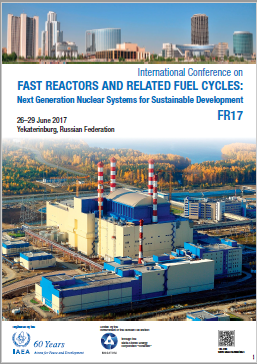Speaker
Ms
Sara Bortot
(KTH)
Description
The entire process of implementation of a nuclear program relies on the availability of qualified expertise and of national infrastructures providing the general framework for the smooth execution of regulated activities. Building an innovative reactor, besides the challenges related to the advanced nuclear technology and the important aspects of costs and financing, implies also the availability of: reactor design theoretical and experimental tools, communication methods and tools, adequate regulatory approaches, building techniques and, of course, connection to the past and current reactors operational experience.
The EU ARCADIA project was conceived so as to promote the further development of nuclear research programs in Europe, including providing support for the ALFRED project towards its realization in Romania.
Consequently, crucial focus was put both on the identification of a comprehensive list of primary needs for the ALFRED project, mainly for what concerns E&T, supporting Infrastructures and regulatory aspects, and on the investigation of the existing national and regional supporting structures – with a particular attention to the ones in Romania and in all the participating New Member States – for defining a map of competences potentially eligible to satisfy the previously identified needs.
According to the output of this analysis and to the definition of Competence as “a holistic notion, consisting of cognitive, technical and behavioural aspects, each of them necessary for the complete definition of the job requirements”, which is found in the nuclear field Job Taxonomy formulated by the EHRO-N working group, an approach was proposed to fill the gaps in competences and infrastructures required for a country to develop and pursue a Gen-IV nuclear programme, which were identified based on the overall picture of the competences required for the implementation of ALFRED demonstrator as innovative reactor in Romania.
In particular, two building blocks were identified and discussed as essential for developing and implementing such an E&T progamme, the latter consisting in applying an outcome-based pedagogical approach to lifelong learning, and harmonizing with the European Credit System for Vocational Education and Training (ECVET) principles.
Country/Int. Organization
Sweden/Royal Institute of technology (KTH)
Primary author
Ms
Sara Bortot
(KTH)
Co-authors
Dr
Daniela Diaconu
(ICN)
Dr
Fosca Di Gabriele
(CVR)
Dr
Giacomo Grasso
(Italian National Agency for New Technology, Energy and Sustainable Economic Development (ENEA))
Prof.
Iztok Tiselj
(UL)
Prof.
Janne Wallenius
(KTH)
Prof.
Leon Cizelj
(IJS)

